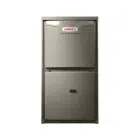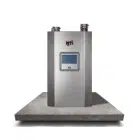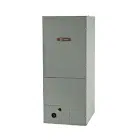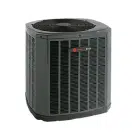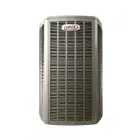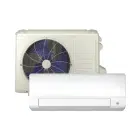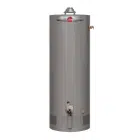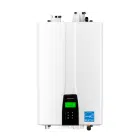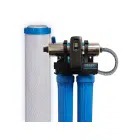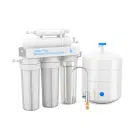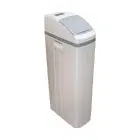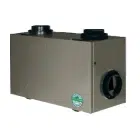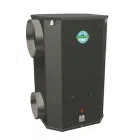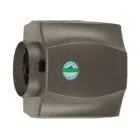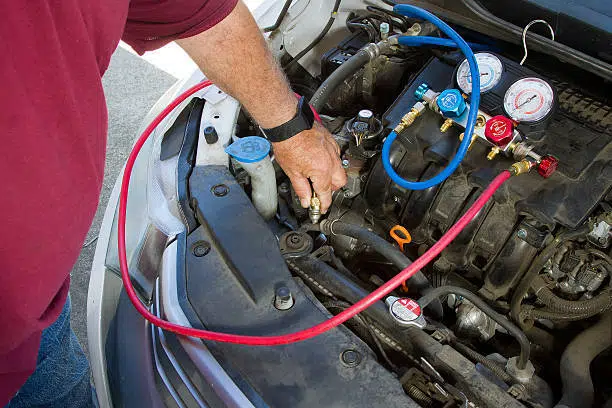
Table of Contents
In Canada, where cold winters are a given, having a reliable source of hot water is essential for every household. Among the various types of water heaters available on the market, electric water heaters are increasingly gaining popularity. But are they the right choice for your home? In this article, we’ll explore the top pros and cons of electric water heaters, drawing on our extensive experience at HVAC Service Solutions. By the end, you’ll have a clearer understanding of whether an electric water heater is the best fit for your home’s needs.
The Top Pros of Electric Water Heaters
Energy Efficiency
One of the biggest selling points of electric water heaters is their energy efficiency. Modern electric water heaters, especially those equipped with advanced technology, are designed to use energy more efficiently than ever before. This means less wasted energy and, ultimately, lower utility bills for homeowners.
Our Experience: From the countless installations we’ve handled across Canada, we’ve observed that homes with electric water heaters often report more consistent energy consumption. This consistency is especially beneficial for households looking to manage their energy usage effectively, particularly in regions where electricity rates are stable or lower.
Lower Initial Cost
When it comes to upfront costs, electric water heaters typically come out on top. Compared to gas water heaters, electric water heaters generally have a lower purchase price. This makes them an attractive option for homeowners on a budget who still want a reliable source of hot water.
Our Insight: Based on our years of experience, we’ve found that many of our clients appreciate the affordability of electric water heaters, especially when they’re looking for a quick and cost-effective replacement. This lower initial cost doesn’t just apply to the unit itself but also to the installation, which tends to be simpler and less expensive than gas water heaters.
Easy Installation and Maintenance
Speaking of installation, electric water heaters are known for being easier to install and maintain. Since they don’t require venting like gas water heaters do, the installation process is often quicker and involves fewer modifications to your home. This not only reduces the installation time but also lowers the overall cost.
Our Observation: In our installations, we’ve noticed that homeowners appreciate the minimal disruption that comes with setting up an electric water heater. Moreover, water heater maintenance is usually straightforward—there’s no pilot light to worry about, and the components are generally easy to access and replace. This simplicity translates into fewer headaches for homeowners down the line.
Safety and Reliability
Safety is always a priority, and hot water tanks electric has an edge in this department. Unlike gas water heaters, which come with the risk of gas leaks or carbon monoxide poisoning, electric models are safer as they don’t rely on combustible fuel. This makes them a reliable choice for families looking to minimize safety risks in their home.
Our Take: Over the years, we’ve seen a growing number of homeowners prioritize safety when selecting a water heater. Electric units, with their lower risk of hazards, provide peace of mind—especially for those living in older homes or homes with children. Additionally, because electric water heaters are generally less complex, they tend to have fewer issues, adding to their reliability.
The Top Cons of Electric Water Heaters
Higher Operating Costs
While electric water heaters can be more energy-efficient, they may also come with higher operating costs, especially in areas where electricity rates are high. Over time, these higher costs can offset the initial savings from the lower purchase price.
Our Insight: In our experience, we’ve found that the ongoing costs of operating an electric water heater can be a concern for some homeowners. It’s important to consider your local electricity rates before making a decision. For example, in areas of Canada where electricity is more expensive, the savings from an electric water heater’s efficiency might not be enough to counterbalance the higher utility bills compared to gas water heaters.
Find out how much it costs to install a new water heater in Canada in our previous article via the link below.
https://thehvacservice.ca/how-much-does-it-cost-to-install-a-hot-water-tank-in-canada/
Slower Heating Times
Another drawback to consider is the slower heating times associated with electric water heaters. Compared to gas water heaters, which heat water quickly due to the direct combustion process, electric water heaters take longer to bring the water to the desired temperature. This can be a downside for larger families or homes with high hot water demands.
Our Experience: We’ve noticed that some customers, particularly those with larger households, express frustration with the slower recovery times of electric water heaters. If you’re someone who uses a lot of hot water—say for multiple showers back-to-back, or for running the dishwasher and washing machine simultaneously—this is something to keep in mind, especially when considering alternatives like gas water heaters.
Power Outage Vulnerability
Electric water heaters are entirely dependent on electricity, which means they won’t function during a power outage. This can be a significant inconvenience, especially in areas prone to outages due to weather conditions or other factors. Without a backup generator, you could be left without hot water when you need it most.
Our Observation: In regions with harsh winters and frequent storms, we’ve found that the vulnerability of electric water heaters during power outages is a major concern for our clients. While some homeowners opt for backup power solutions, it’s an additional expense that needs to be factored into the decision. This is where gas water heaters have a clear advantage, as they can continue to provide hot water even when the power is out.
Limited Hot Water Supply
Depending on the size and capacity of the electric water heater you choose, you might find that it struggles to keep up with the hot water demands of a larger household. Electric models can have limited hot water output, particularly if you choose a tank-based system that needs time to reheat water after the initial supply is depleted.
Our Insight: From our installations and customer feedback, we’ve observed that homes with high hot water usage might find electric water heaters less satisfactory. This is especially true if the household is using multiple hot water outlets simultaneously. In such cases, we often recommend considering a larger unit or exploring alternative options like tankless electric water heaters. However, gas water heaters are often preferred by families with high hot water needs, as they typically offer a faster recovery rate.
Pros | Cons |
|---|---|
Energy Efficiency:
Modern models save energy, leading to lower electricity bills. | Higher Operating Costs:
In regions with high electricity rates, the operating costs can be higher than those of gas water heaters. |
Lower Initial Cost: Electric water heaters are generally cheaper to purchase and install.
| Slower Heating Times: Electric models take longer to heat water compared to gas water heaters, which can be inconvenient for larger households.
|
Easy Installation and Maintenance: No complex venting required, making installation simpler and less expensive.
| Power Outage Vulnerability: During a power outage, the water heater won’t work, unlike gas models.
|
Safety and Reliability: Less risk of gas leaks and carbon monoxide compared to gas water heaters.
| Limited Hot Water Supply: Depending on capacity, it may struggle to meet the hot water needs of larger families.
|
Did You Know?
One of the lesser-known benefits of electric water heaters is that they can be paired with renewable energy sources like solar panels. If you have a solar power system installed in your home, an electric water heater can be an excellent companion, allowing you to use the electricity generated by your solar panels to heat your water. This not only further reduces your energy bills but also makes your home more environmentally friendly.
Conclusion
Choosing the right water heater for your home is a significant decision that depends on a variety of factors, from your budget to your household’s hot water needs. Electric water heaters offer numerous advantages, such as energy efficiency, lower initial costs, ease of installation, and enhanced safety. However, they also come with certain drawbacks, including potentially higher operating costs, slower heating times, vulnerability during power outages, and limitations in hot water supply.
At HVAC Service Solutions, we’ve seen firsthand how electric water heaters can be an excellent choice for many Canadian homes, especially those in areas with stable electricity rates and moderate hot water needs. However, it’s crucial to weigh the pros and cons carefully and consider your specific circumstances before making a decision. If you’re unsure whether an electric water heater is right for you, we’re here to help.
Frequent Asked Questions
What is the difference between an electric water heater and a gas water heater?
Electric water heaters use electricity to heat water, while gas water heaters use natural gas or propane. The primary difference lies in the energy source, which affects the installation, operating costs, and performance of each type. Electric water heaters tend to be easier to install and maintain since they don’t require venting, but they often have slower heating times and can be more expensive to operate in areas with high electricity rates. Gas water heaters, on the other hand, heat water faster and can operate during power outages, but they come with the added complexity and potential risks associated with gas usage.
Are electric water heaters more energy-efficient than gas water heaters?
Yes, electric water heaters can be more energy-efficient, especially modern models that are designed to minimize energy waste. Electric heaters convert nearly all of the energy they use into heat, which means they often have higher efficiency ratings compared to gas water heaters. However, the overall cost-effectiveness depends on local energy rates; in areas where electricity is expensive, the savings from efficiency may be offset by higher operating costs. Additionally, gas water heaters can sometimes provide hot water more quickly, which might reduce the time your water heater is in operation.
How long does it take for an electric water heater to heat water?
The time it takes for an electric water heater to heat water depends on the size of the tank and the initial temperature of the water. On average, it can take anywhere from 1 to 2 hours to fully heat a 40-gallon tank of water. This is slower compared to gas water heaters, which can heat the same amount of water in about half the time. If you have a high hot water demand, this slower recovery time might be noticeable, especially if multiple appliances or showers are using hot water simultaneously.
What is the lifespan of an electric water heater?
The typical lifespan of an electric water heater is about 10 to 15 years, depending on the model, usage, and maintenance. Regular maintenance, such as flushing the tank to remove sediment buildup and checking the heating elements, can help extend the lifespan. Compared to gas water heaters, electric models generally have a longer lifespan due to fewer parts being exposed to the wear and tear of combustion. However, factors like water quality and usage patterns can significantly impact how long your electric water heater lasts.
Can an electric water heater be used with solar panels?
Yes, an electric water heater can be integrated with solar panels, making it an excellent option for homeowners looking to increase energy efficiency and reduce their carbon footprint. When paired with a solar power system, your electric water heater can use the electricity generated by the solar panels to heat water, further reducing your reliance on grid electricity and lowering your utility bills. This setup is particularly beneficial in areas with abundant sunlight, and it’s a step toward making your home more environmentally friendly.
Are electric water heaters safe?
Electric water heaters are generally very safe. They eliminate the risks associated with gas, such as gas leaks and carbon monoxide poisoning, making them a safer option for homes, particularly those with children or in older buildings. Additionally, because they don’t require venting, there’s no risk of flue gases entering your home. However, like any electrical appliance, they should be properly installed and maintained to ensure safety. Regular checks on wiring and the thermostat can prevent potential electrical issues.
What happens to an electric water heater during a power outage?
During a power outage, an electric water heater will not function, meaning you won’t have access to hot water until the power is restored. This can be a significant drawback in areas prone to frequent outages, especially during winter months when hot water is essential. Some homeowners choose to install backup generators to power their electric water heater during outages, though this adds to the overall cost. Gas water heaters, by contrast, can continue to operate during power outages, giving them an advantage in this scenario.
How does the cost of operating an electric water heater compare to a gas water heater?
The cost of operating an electric water heater varies depending on local electricity rates, the efficiency of the water heater, and your household’s hot water usage. Generally, electric water heaters can be more expensive to operate in regions with high electricity costs. Gas water heaters, while typically cheaper to run, involve costs associated with gas supply and venting. However, because electric water heaters are more efficient in converting energy into heat, they can be cost-effective in areas where electricity is affordable or if paired with renewable energy sources like solar panels.
Can an electric water heater supply enough hot water for a large family?
An electric water heater can supply enough hot water for a large family, but the key is choosing the right size and type of unit. For larger households, a bigger tank or a tankless electric water heater may be necessary to meet the demand. However, electric models generally have slower recovery times, meaning they take longer to heat water after the initial supply is used. This can be a limitation if multiple showers, dishwashers, and laundry machines are running simultaneously. In such cases, some families might find gas water heaters more suitable due to their quicker recovery rates.
Is an electric water heater easy to maintain?
Yes, electric water heaters are relatively easy to maintain compared to gas water heaters. They have fewer parts and no need for venting, which simplifies upkeep. Routine maintenance includes checking the heating elements, inspecting the thermostat, and flushing the tank to prevent sediment buildup. Regular maintenance not only extends the lifespan of the water heater but also ensures it operates efficiently. In our experience at HVAC Service Solutions, we’ve found that electric water heaters typically require less frequent service calls than gas models, making them a convenient choice for many homeowners.
Share

